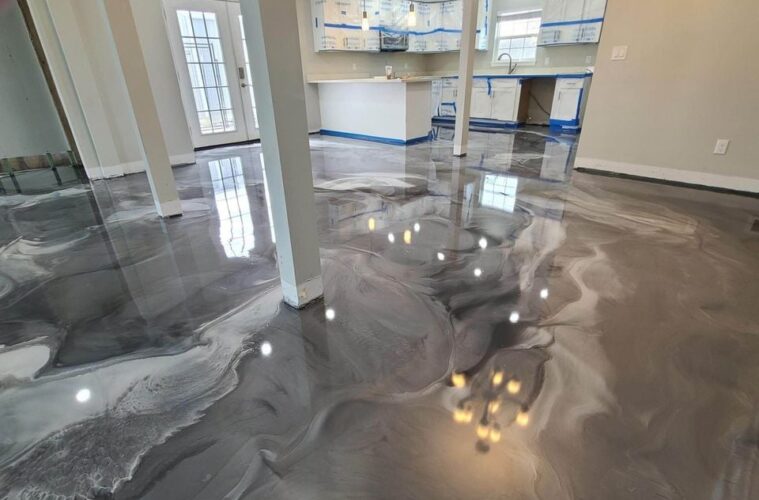Resin flooring can be an excellent option for commercial and industrial settings and it is also gaining in popularity as a residential flooring material. Many people and companies appreciate the aesthetics associated with resin flooring – it has a remarkably smooth finish and a wide variety of colour options. Its durability, however, can often be its biggest draw. In this article with tips from Trusty Tread we answer the question “are resin floors durable?”
What is resin flooring?
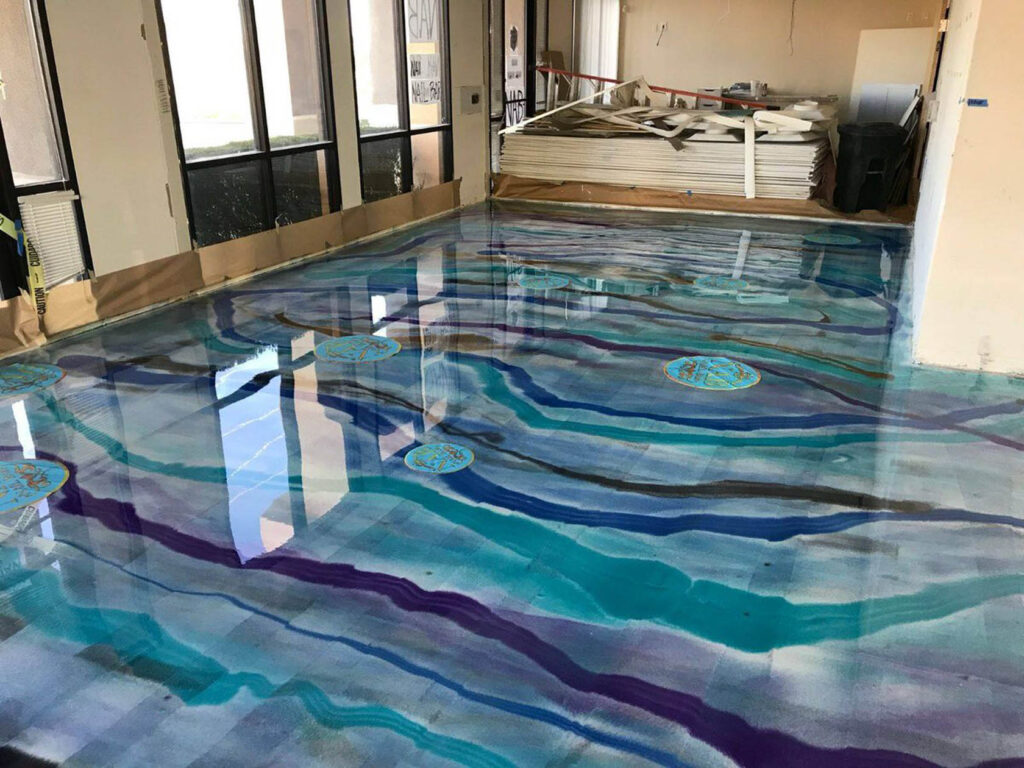
source: pinterest.com
There are a few different types of resin flooring options. These include epoxy flooring, polyurethane flooring, and PMMA flooring. They each have specific attributes that make them best suited to different situations and needs.
Polyurethane flooring, for example, is extremely heat resistant and PMMA flooring is particularly flexible and can be used on top of more unstable substrates.
By far, however, the most popular resin flooring choice is an epoxy system so we are going to focus mainly on this type.
Epoxy flooring surfaces are created using a mix of resin and hardeners. The exact amount per square metre depends on the required thickness of the epoxy resin. The resin is liquid and is mixed with chemical hardeners before being poured onto a concrete floor. A chemical reaction then occurs between the hardeners and the resin to solidify the resin into a rigid plastic with tightly crosslinked polymer bonds.
The resulting surface is hard yet flexible and extremely smooth.
How durable is resin flooring?
If you are looking for a durable floor, epoxy resin flooring is a great choice. Let’s take a look at some of the attributes that make resin flooring so durable.
Impact resistance
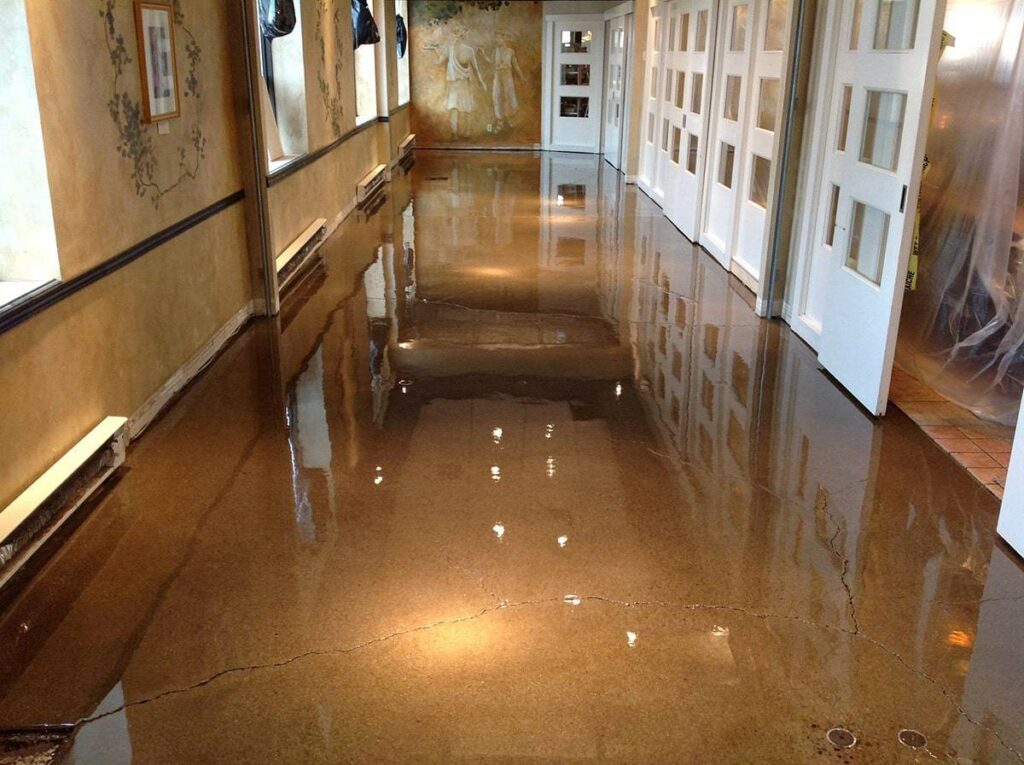
source: pinterest.com
Because an epoxy floor still has flexibility, it can absorb shocks that other flooring types would not be able to. This makes it perfect for industrial settings where there is a chance that heavy loads could be dropped onto the floor.
Weight resistance
The flexibility and strength of epoxy flooring also means that it can take weight without damage. Again, this makes it perfect for industrial settings where there might be heavy equipment, heavy machinery, or heavy vehicles.
It also works well as a garage floor. Even with constant heavy vehicles moving on top of epoxy floors, there is unlikely to be any damage. And it is skid resistant, making it a safe option for a garage floor.
Scratch resistance
Epoxy resin floors are highly resistant to scratches and wear and tear. This makes them a popular choice for commercial settings where there is likely to be a high amount of foot traffic.
Water resistance
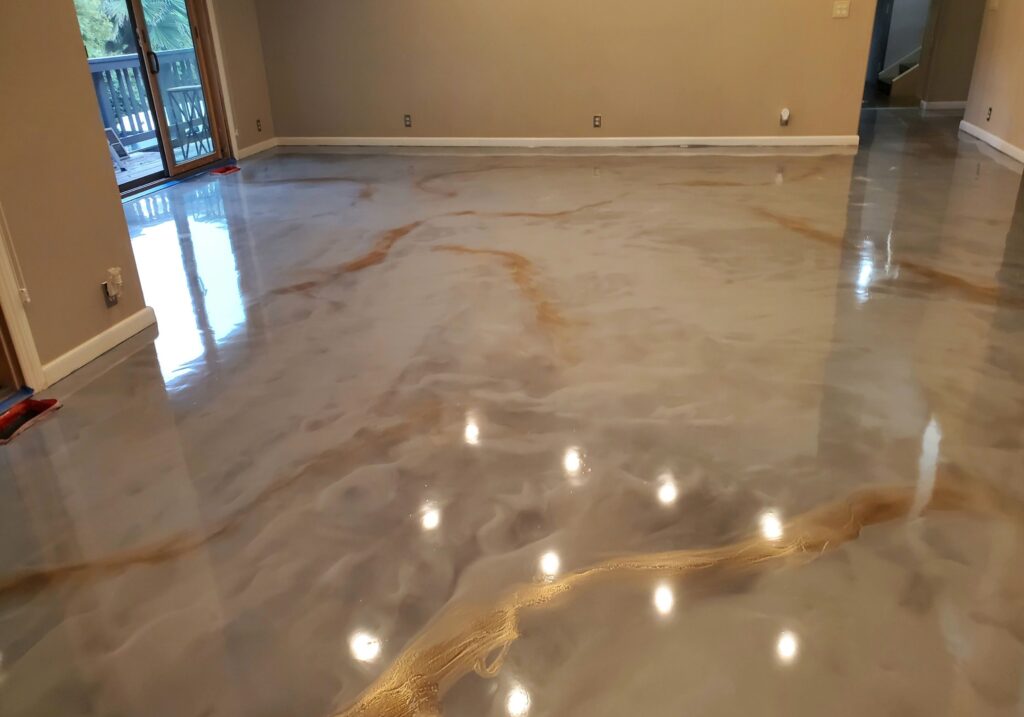
source: pinterest.com
Many flooring surfaces get damaged if they are exposed to too much moisture but resin floorings are water resistant so can withstand frequent water spills.
Chemical resistance
Chemical spills can easily damage many floor types but epoxy floors are chemical resistant. Their tight molecular bonds won’t react to chemicals that are spilt on them which makes them an ideal choice for somewhere like a laboratory.
Stain resistance
In many industrial spaces, people are working with substances that can cause staining. In these situations, a resin floor will work well as it is stain resistant. Not much sticks to epoxy flooring, and almost nothing is absorbed, so the substances can easily be wiped away without leaving stains.
Heat resistance
Finding flooring that works well under high temperatures can be challenging. Studies have shown that epoxy resin has a greater ability to withstand high temperatures than steel and concrete without showing distortion or cracks.
Fire resistance
An epoxy resin floor is able to withstand fires. It is not flammable and won’t help to spread any fires that start. It also won’t release any poisonous smoke if the temperatures do get high enough to cause any melting.
How long does epoxy resin flooring last?
One of the many benefits of an epoxy floor coating is its longevity. You can expect a resin floor to last upwards of 10 years, sometimes into several decades.
Epoxy flooring installation
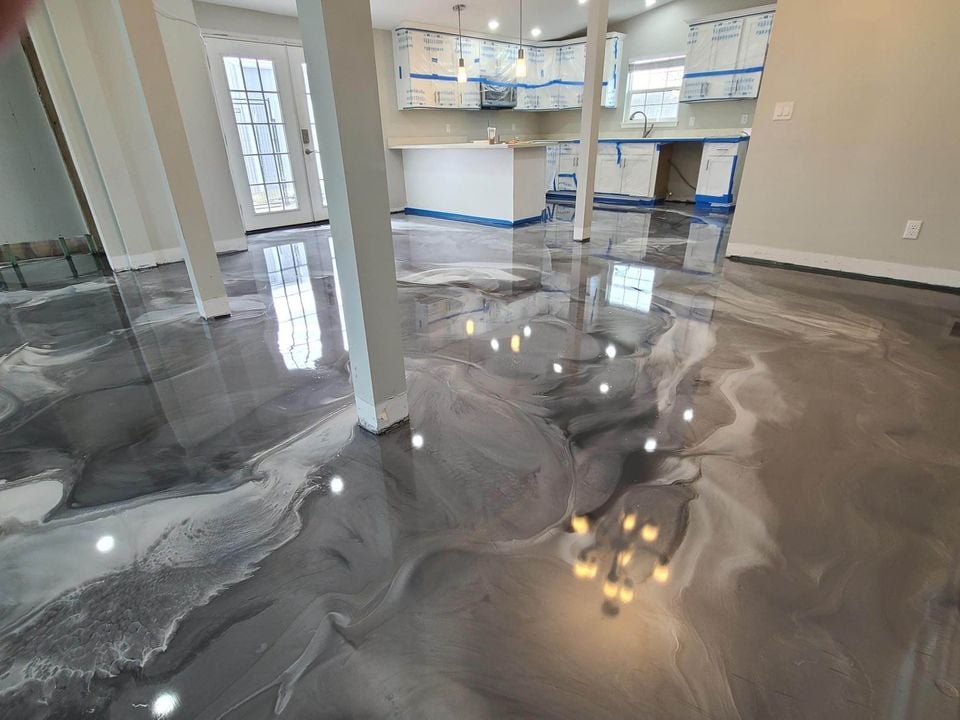
source: pinterest.com
The lifespan of an epoxy coating is heavily reliant on how it is installed, however. The installation will also greatly affect its durability.
Installing epoxy flooring is a skilled trade that requires thorough training. Unlike many other flooring types, there is very little room for error when you install epoxy flooring. A mistake at the installation stage can mean that the flooring as a whole will never perform as intended.
Preparing the substrate
Applying epoxy flooring needs to be done on top of a stable substrate (usually concrete). Because the resulting epoxy floor coating is entirely seamless, any movement in the substrate underneath will quickly cause cracks. And this will mean that the entire floor coating will need to be replaced.
The surface also needs to be completely clean and dust free or the synthetic resin won’t adhere to it properly and could lift.
Mixing the resin
The resin and hardeners need to be added at the correct ratios and mixed thoroughly. A mistake at this stage can mean that the epoxy resin coating does not adhere to the concrete floor underneath and could lift or crack.
Curing
The curing stage for epoxy flooring is critical. It is during this curing that the chemical reaction that makes it so durable occurs. One of the main factors that can affect the curing is installing epoxy flooring at the wrong temperature.
If the air temperature is too high, the resin floor could cure too quickly which can mean it doesn’t adhere properly. If the air temperature is too low, on the other hand, the resin could take too long to cure which can leave it brittle and less durable.
The bottom line
Epoxy flooring is the perfect choice for many homes and businesses. Properly installed, it is extremely durable and has a long lifespan. It is also highly attractive with many design options and very low maintenance. There are good reasons why epoxy floors are becoming so popular and their durability is one of their major draws.

